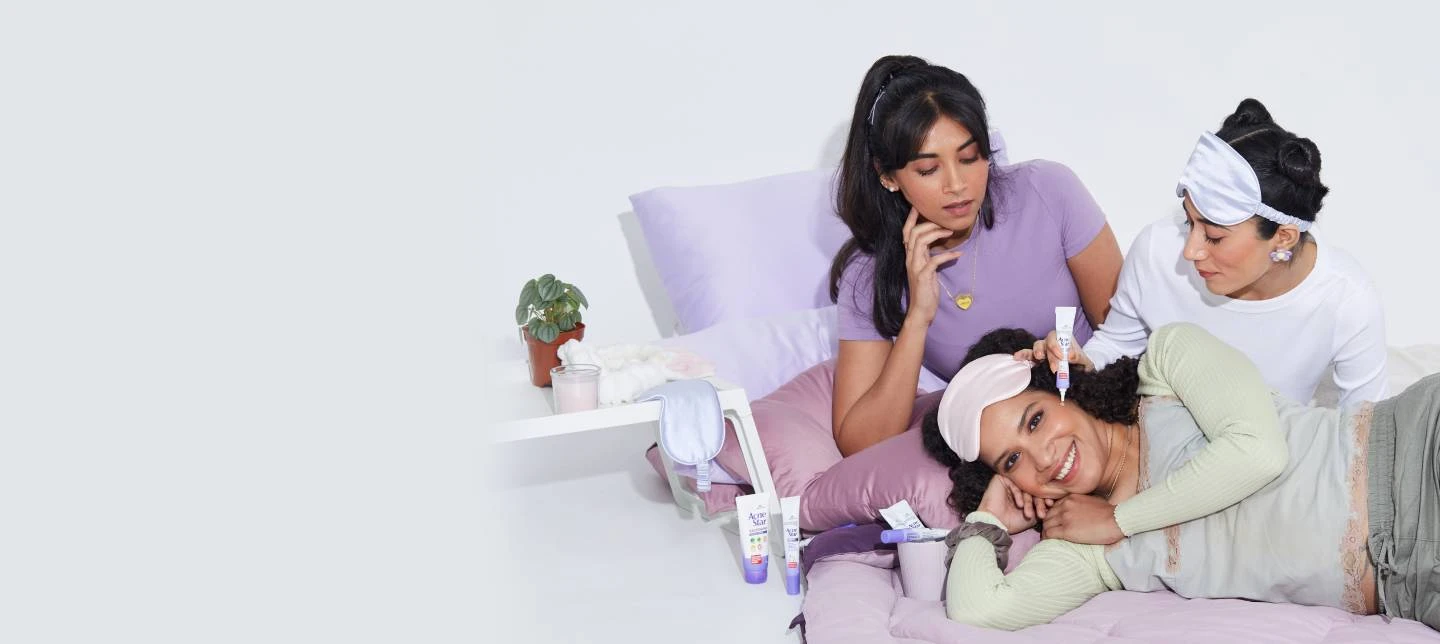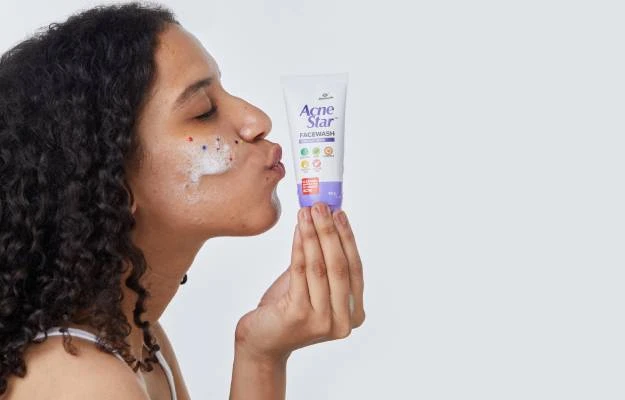Everyone is aware of the benefit of sleep for a person's health; however, this can come as a surprise to how sleep deprivation and skin health affects their skin, particularly in regards to acne. This relationship is not particularly self-evident; however, it has important implications. If, for instance, you wake up with a flood of pimples on your face, it might be interesting to see scientifically how lack of sleep causing breakouts affects the healthiness of the skin.
How Sleep Affects Acne
One of the major variables related to skin and acne is sleep. Some form of repair work will be going on in any body system during sleep; for the skin, this includes repairing some damage due to environmental elements caused by pollutants and ultraviolet radiation, among others. Without adequate rest, an essential reparative process gets impaired. What mechanisms exactly contribute to the worsening of acne through sleep?
Of course, sleep's impact on health is closely related to your skin. A key example is how it controls inflammation. Bad sleep increases inflammatory proteins, and these are often precursors to acne lesions. Basically, bad sleep can fuel the type of inflammation that manifests as red pimples along the face. Thus, if one ever denies oneself a good night's sleep, then perhaps they are unwittingly creating an environment in which how sleep affects acne becomes evident.
Sleep Deprivation and Skin Health
Apart from breaking out, sleep deprivation and skin health generally affect the quality of your skin. Your body releases growth hormones that enable the regeneration of your skin during deep sleep. Sufficient sleep slows down this natural process; therefore, your skin will not reactivate easily to harm or irritation that may be inflicted on it. The causes eventually lead to dull, tired-looking skin with worse acne scars. The sleep and acne cycle is far more closely related than you think.
As sleep deprivation is indeed relevant, stress also has great importance. While in the majority of cases, a deficit of sleep corresponds with higher levels of stress, higher levels of stress result in the production of higher amounts of the hormone cortisol which is a hormone that combines with increased oil being produced in the skin. This oil, when in combination with dead skin cells and bacteria, causes blockage in pores and thus results in breakouts. In other words, stress from lack of sleep causing breakouts may also aggravate the condition of skin breakouts.
Managing Acne With the Right Skincare Routine
If sleep deprivation is the indicator that leads to the breakout of acne, then an efficient skincare routine will balance it out, and the products are also designed to eradicate breakouts simultaneously, allowing skin repair. Mankind's acnestar gel uses antibacterial properties that aid in reducing inflammation and eliminates the causative bacteria that cause the problem of acne and skin irritation, making it an excellent addition to one's overnight skincare.
The right products can work hand-in-hand with better sleep hygiene to improve your skin. Regularly using Mankind AcneStar gel after cleansing your face may help keep acne at bay while your body works to repair skin damage overnight. And let's not forget about those scars - AcneStar scar treatment can help fade acne scars so that the rest of your skin heals more smoothly.
Secrets for Better Sleep and Clearer Skin
Now that it is understood that sleep deprivation leads to the formation of acne, the time has come to understand what approaches improve both quality of sleep and health of skin. The implementation of these approaches, aside from having better nights for restoration, helps the skin to be granted a chance to heal and refresh itself.
Has a Predictable Evening Sleep Schedule
One of the best methods to raise the quality of sleep is by setting a routine sleeping schedule. The human body possesses an internal biological clock, termed the circadian rhythm. Such rhythm operates on predictability. When the same bedtime and wake-up time each day are followed, the body innately prepares itself to begin recuperation and rest. This predictability permits deeper sleep. Skin cells, therefore, can carry out their necessary restorative processes. A constant night sleeping pattern of around 7-9 hours is advised. However, in the case of drastic changes to the schedule every day, the body gets confused and can't get accustomed to the new rhythm every time. So, suboptimal sleep results in acute outbreaks of acne.
Create A Calming Sleeping Space
Your sleeping quarters are a place to sleep, free from distraction or disturbing elements. Bright light and electronic devices like your phone or laptop emit blue light and interfere with the production of melatonin, the hormone that regulates sleep. This can also be achieved by cultivating the habit of switching off electronic devices at least an hour before sleep and using dimmed lighting to inform the brain that it is time to relax. The quality of the environment in which one sleeps can also be improved by keeping the place cool and calm, hence conducive conditions to achieve restorative sleep. The fresh and relaxed surroundings will help you sleep better while refreshing the skin of the body.
Drink Sufficient Fluids Throughout the Day
Proper hydration will contribute to an overall healthy general appearance and a healthy-looking skin. Deficiency of fluids can easily lead to drying out and increased sensitivity that escalates the whole matter. It may be tempting on occasional hectic days, but it is actually very crucial. Hydration will keep the skin supple, meaning it has an improved ability to remove impurities that may cause breakouts. Indeed, if the skin is dehydrated, it will produce more oil that causes the pores to be blocked. If kept well hydrated, on the other hand, the skin would have a good chance to heal overnight and rejuvenate itself, hence improving its basic protection against acne breakouts.
Develop a Nighttime Skincare Routine
Skin requires a little bit of attention before getting to bed, especially when your skin is problematic due to acne. In that case, products like acnestar gel are great for your skin. Proper face washing with a mild product like acnestar face wash cleans dirt and oils that have accumulated during the daytime as well as makeup, which may clog pores and thus provoke acne. Even after the purification process, the acnestar gel can neutralize the blemishes it already has due to antibacterial properties. The process of the acnestar gel begins overnight, helping to soothe redness due to inflammation and will help in killing germs and preventing future pimples. During sleep time, it will help your skin get the proper inputs to treat itself and maintain its clarity overnight.
This apart, the skin works fine when it's asleep. Thus, only synergy in an appropriate skincare regimen and sound sleeping schedule can better contribute towards healthy-looking glowing skin during the morning hours.
Does More Sleep Equal Clearer Skin?
The short answer is yes. While many contributing factors can lead to a breakout, getting enough rest can really have an impact on the state of your skin. Sleep and acne are intricately connected, sleep allows the skin to regenerate naturally, reduces inflammation, and balances its levels of sebum. Along with a regular regimen for taking care of your skin that includes tools like Mankind AcneStar gel and acnestar face wash, over time users should be seeing fewer breakouts and clearer skin overall.
Of course, it's not too much to hope that the acne will magically clear up overnight, but sleep hygiene and proper products will certainly go a long way in managing the breakouts better. The next time you fancy staying up late or sleeping in, think about how it might be your skin thanking you for that previous night's sleep.
Summing it all, the fact remains acne cannot be sent packing by good sleep alone, though waking up to breakouts is very real. Combining the sleep regimes with the proper skincare solutions, such as those offered by AcneStar, goes a long way in ensuring one maintains the complexion.












